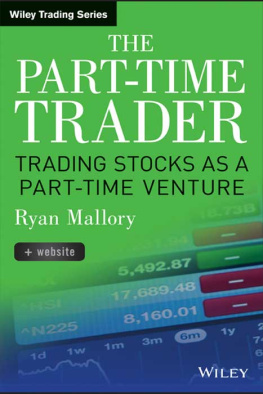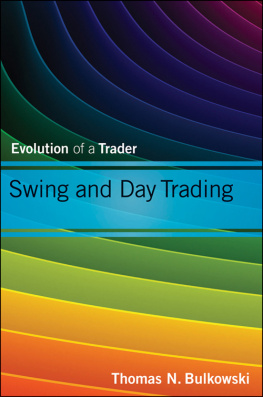
ii
MOMO TRADERS
Tips, Tricks, and Strategies from Ten TopTraders
Brady Dahl
with
Nathan Michaud
miltona
Miltona Publishing
iii
iv
Some names in tins book have been chanced to protect the privacy of the individuals involved.
Cover design: Josh Andrews
Copyright 2015 by Brady Dahl. All rights reserved.
Published by Miltona Publishing LLC.
No part of this publication may be reproduced, distributed, stored in a retrieval system, or transmitted in any form or by any means, including photocopying, recording, or other electronic or mechanical methods, without the prior written permission of the publisher, except in the ease of brief quotations embodied in critical reviews and certain other noncommercial uses permitted by copyright law.
For permission requests, contact the publisher at
www.MiltonaPublishing.com.
Limit of Liability/Disclaimer of Warranty: While the publisher and author have used their best efforts in preparing this book, they make no representations or warranties with respect to the accuracy or completeness of the contents of this book and specifically disclaim any implied warranties of merchantability or fitness for a particular purpose. No warranty may be created or extended by sales representatives or written sales materials. The advice and strategies contained herein may not be suitable for your situation. You should consult with a professional where appropriate.
Neither the publisher nor the author shall be liable for any loss of profit or any other commercial damages, including but not limited to special, incidental, consequential, or other damages.
Orders by U.S. trade bookstores and wholesalers, please visit www.MiltonaPublishing.com. Special discounts are available on quantity purchases by corporations, associations, and others.
Printed in the United States of America Also available as e-book at www.MomoTraders.com
ISBN 978-0-692-51080-3
First Edition
10987654321
v
For Sonny, Sawyer, and MarloMay you always dance like nobody's watching..
vi
Contents
vii
viii
Foreword
Brett N. Steenbarger, Ph.D.
Its an honor to be able to write the foreword for one of the most practical and real trading books Ive encountered in a long time. In these pages, youll read about real people and their all-too-real trading: the blow-ups, the big wins, and everything in between. Most of all, youll gain a window on some very dedicated and successful traders that Ive had the pleasure to meet thanks to Traders4ACause. In a world full of promotions and self-hype, its refreshing to hear real traders talk candidly about their paths to success.
As a psychologist who works with traders on their performance, Ive had the privilege of working full time with day traders at Kingstree Trading in Chicago and then with portfolio managers at Tudor Investment Corp. in Greenwich, Connecticut. Along the way, Ive gained experience in both prop shops and hedge funds, seeing the many ways in which money is made and lost.
One thing that experience has taught me is that trading is different from portfolio management. The trader who is scalping individual names from a Level II display plays a different game from the manager who holds many positions for weeks and balances those exposures in a portfolio. For the trader, the name of the game is pattern recognition and the ability to see situations develop in real time and then act ix
decisively. Its all fast thinking and quick information processing the portfolio manager, its much more about slow, deep thinking, macroeconomic analysis, and detailed portfolio construction.
These are very different skill sets, and the market participant who shines at one is not necessarily going to succeed at the other. Indeed, I would argue that many problems for traders occur when they get away from their cognitive strengths. When the fast thinker slows down and overanalyzes, it usually leads to trouble. When the deeper thinker starts staring at screens and reacting to price movement, bad things happen.
In the pages that follow, youll meet a number of traders who epitomize fast thinking and rapid information processing. Youll get a sense for both the personality traits and the cognitive skills that contribute to successful day trading.
For me, five themes cut across the interviews and are hugely valuable takeaways:
1) The importance of early blowups An unusually high proportion of the interviewees started their careers by going through difficult periods of loss. Typically they bet big and lost. Their success came, in no small measure, from learning from those losses and becoming more disciplined and focused as traders.
2) The importance of risk-taking The traders interviewed are willing to take significant risk when the factors that define a good trade line up. Theyve learned to not bet the farm on any single opportunity, but they arent afraid to aggressively pursue opportunity. This risk-taking quality means that they have to have the mental and emotional fortitude to weather P&L volatility.
3) The importance of being well-capitalized A number of the traders pointed out that you need to start with money to make meaningful money. One reason for this is that, without some financial cushion, it is difficult to truly trade aggressively when the edge is present.
4) The importance of independent thinking A common theme among the interviewees is the importance of trading your ideas and not those borrowed from others. With Twitter and chat rooms going non-stop, its easy to get caught up chasing other peoples trades. The successful traders can take meaningful risk, because theyre able to own their trades.
x
5) The importance of intrinsic motivation To a person, the traders interviewed don't trade for a job, and they dont even trade as a career. Tor them, trading is a calling a fundamental part of who they are. It is precisely because of this intrinsic motivation that they are able to sit in front of screens for hours a day, day in and day out, and internalize trading patterns.
This last point is extremely important. Theres a myth in trading psychology that success is a function of finding your edge and trading it with discipline. The reality of both trading and portfolio management is that markets are ever-changing. What worked in 2000 is not what is working in 2015; OTC microcaps may make great trading vehicles during one period and then die out in another. The truly successful trader is the adaptive trader. Yes, that means trading your edge with conviction and discipline, but it also means looking at markets through fresh eyes and finding new sources of edge.
So allow me to offer a somewhat novel interpretation of trader success: The traders youre going to read about find their ultimate edge in perceptual creativity. Their cardinal strength is the ability to see new tilings in old data. Yes, discipline is important. Yes, money management is essential. Yes, risk-taking is necessary. At the end of the day, however, what sustains trading over the long haul is the capacity to see what the herd does not. That perceptual creativity is the ultimate source of edge and what turns a trading gig into a lifelong source of income and fulfillment.
Day trading may or may not be your path. After reading these interviews, youll probably find yourself either inspired or appalled. Its all goodyoull only find your own success by immersing yourself in a field that speaks to your greatest strengths. At the very least, the following pages will open your eyes to a unique niche in the world of creativity: one that, for the right people, can be rewarding in more ways than one.
Next page
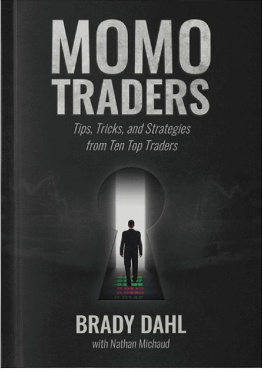

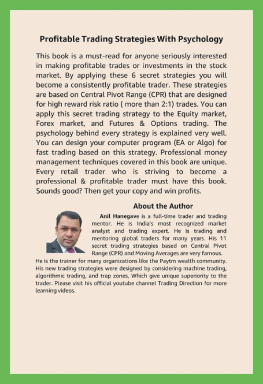
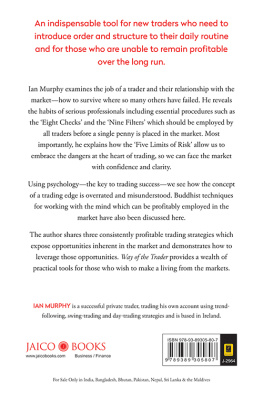

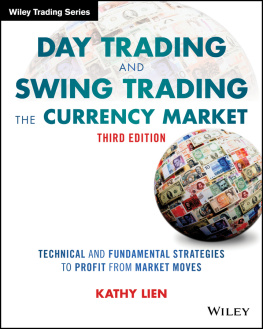
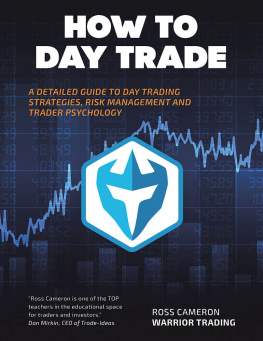
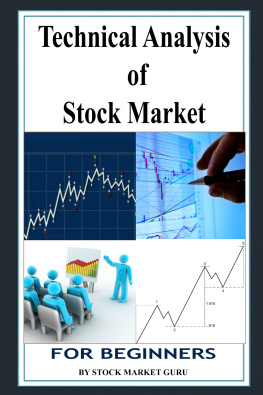
![Ryan Mallory [Ryan Mallory] - The Part-Time Trader: Trading Stock as a Part-Time Venture, + Website](/uploads/posts/book/124134/thumbs/ryan-mallory-ryan-mallory-the-part-time-trader.jpg)
